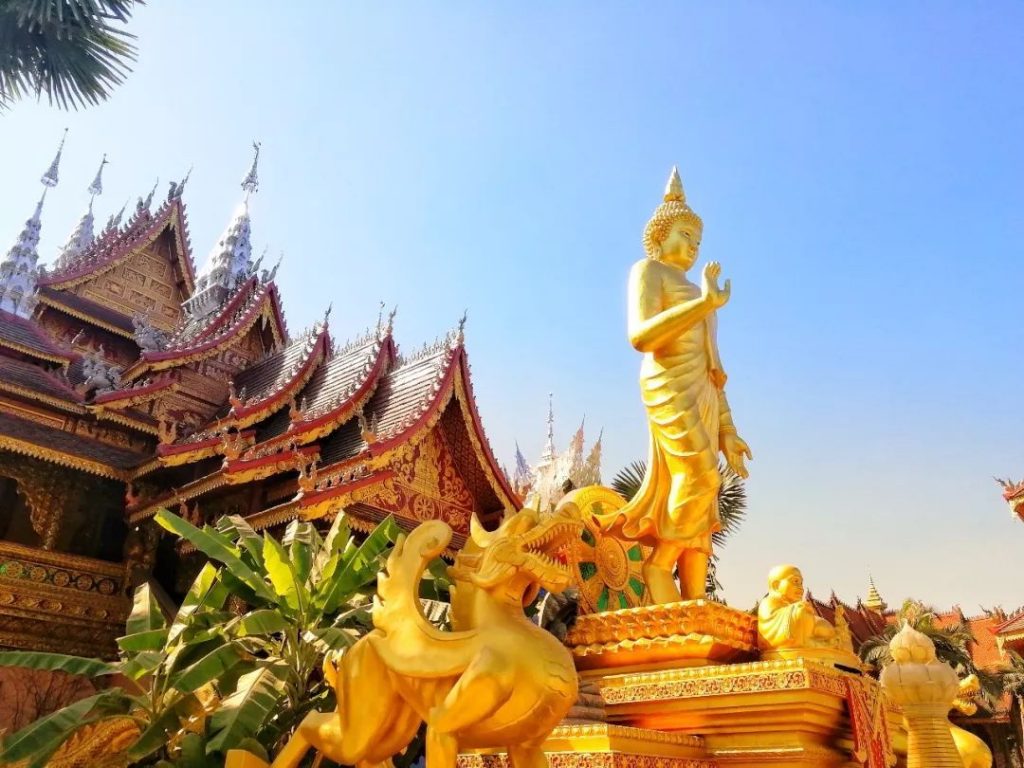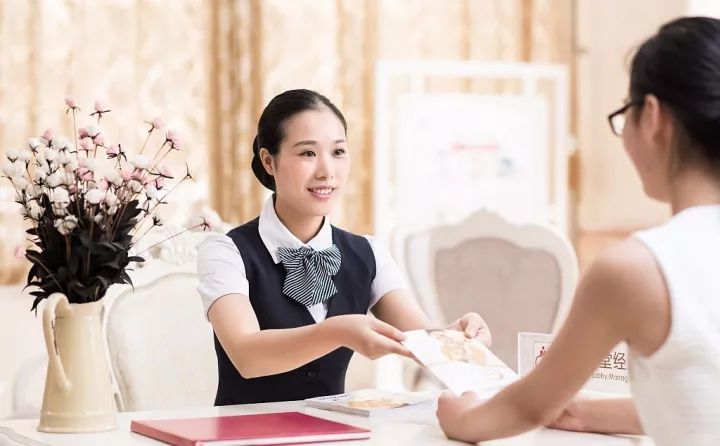
Buddhism and Diplomacy: prerequisites of foreign cultural exchange in Chinese Theravada
Chinese, South Asian and Southeast Asian Theravada Buddhism are of the same origin, and together they constitute the “Southeast Asian Theravada Buddhism cultural circle”. The Buddhist cultural exchange has a long history. In the public diplomacy between China and South Asia and Southeast Asia, the unique advantages of Theravada Buddhism’s folk diplomacy should be fully utilized to make Theravada Buddhism a “common topic” for cultural exchange with neighboring countries, realize the benign interaction between Theravada Buddhism’s “geopolitical advantages” and “Chinese narratives”, tell Chinese stories, spread China’s image, convey China’s voice, and transmit China’s positive energy, so as to truly promote the people-to-people exchanges and mutual learning between China and South Asian and Southeast Asian countries.
I. Achievements of Chinese Theravada Buddhism’s cultural exchange with foreign countries
Over the past decade, the Chinese Theravada Buddhist community has carried out a series of folk diplomacy activities, maintained friendly visits and exchanges with the international Buddhist community, especially the South Asian and Southeast Asian Buddhist community, enhanced the traditional Dharma friendship between China and South Asian and Southeast Asian countries, and made great achievements in promoting people-to-people exchanges. Let me give you a few examples.
On the one hand, it is “going out”: First, the Chinese Theravada Buddhist community participated in the overseas offering of the Buddha’s tooth relic. In 2003, the Chinese Buddhist escort team, led by Dao Shuren, president of the Yunnan Buddhist Association, escorted the Buddha’s finger relic to Thailand for worship. Second, the great monks and masters of the Chinese Southern Buddhism community were invited to participate in various international Buddhist exchange activities. For example, President Dao Shuren and Pasonglie Longzhuangmeng, Huba Hanting, Huba Dengtai, Huba Tikadashi and others have practiced and worked hard to promote the external exchange of Southern Buddhism. In 2016, the Chinese Buddhist delegation, led by Pasonglie Longzhuangmeng, went to Thailand to attend the 13th “United Nations Vesak Day” International Buddhist Conference. Pasonglie Longzhuangmeng delivered a speech at the opening ceremony of the conference. Third, go out to carry out lectures and exchanges in the China-Myanmar border area. For example, Huba Dengtai and Huba Wendida carried out lectures and exchanges in Muse, Namkham, Lashio and other places in Myanmar.
On the other hand, it is “please come in”: First, in 2012, the opening ceremony of Xishuangbanna General Buddhist Temple was held, and thousands of monks from the three major language systems of India, Sri Lanka, Nepal, Bangladesh and other countries participated, marking that the cultural exchange of Theravada Buddhism between China and South Asia and Southeast Asia has entered a new historical period, which has played a positive role in promoting friendly exchanges between my country and South Asia and Southeast Asia.
Second, Ruili, China has held the “China-Myanmar Border Region Buddhist Cultural Exchange Conference” for several consecutive years, which has promoted the cultural exchange of Theravada Buddhism in the China-Myanmar border region and further consolidated the Dharma friendship between the Chinese and Burmese Buddhist circles.
Third, in 2016, the “First Theravada Buddhism Summit Forum and the Enthronement Ceremony of Pasonglie and Pahupa” was held in Jinghong City, Xishuangbanna Prefecture. More than 500 monks, scholars and guests from the United States, Britain, Thailand, Sri Lanka, Myanmar and other countries and regions jointly discussed feasible ways to carry out Buddhist cultural cooperation between China and South Asia and Southeast Asia, and give full play to the folk diplomacy function of Theravada Buddhism.
Chinese Theravada Buddhism has played a bridging role between Mahayana Buddhism and Theravada Buddhism. This is the first large-scale international Theravada Buddhism event since the founding of the People’s Republic of China, which is of great significance to the development of Chinese Theravada Buddhism.
In 2017, the “Second Theravada Buddhism Summit Forum and Pahupa Enthronement Ceremony” was held in Mangshi, Dehong Prefecture. More than 500 experts and scholars from countries and regions such as Thailand, Myanmar, and Sri Lanka, as well as monks from home and abroad attended the meeting. The forum discussed and exchanged views on the positive role of Theravada Buddhist culture in promoting international peace and social development, and built a platform for deepening Lancang-Mekong Cooperation and regional exchanges and cooperation in the Bangladesh-China-India-Myanmar Economic Corridor. It has created a good social and cultural environment and international cooperation environment for China’s “Belt and Road” construction and Yunnan’s construction of a “radiation center facing South Asia and Southeast Asia”. The Lincang Theravada Buddhism Hupa Enthronement Ceremony held in March 2018 also played a positive role in improving the status of Chinese Theravada Buddhist monks in foreign exchanges and promoting Sino-Myanmar Buddhist cultural exchanges.
- Problems and challenges of Chinese Theravada Buddhism’s foreign cultural exchanges
In the past decade, Chinese Theravada Buddhism has made some achievements in foreign cultural exchanges, but also faced many difficulties and challenges, which are mainly manifested in three aspects:
First, there is insufficient understanding of the status and role of Theravada Buddhism’s people-to-people diplomacy. In fact, religious people-to-people diplomacy and my country’s public diplomacy complement each other. Theravada Buddhism can provide a good platform and channel for people-to-people diplomacy. Theravada Buddhism’s international cultural exchange activities have played an irreplaceable role in enhancing the influence of Chinese culture and showing China’s image. However, the current understanding of the unique status and role of Theravada Buddhism’s people-to-people diplomacy lacks forward-looking considerations, which to a certain extent affects the positive energy of Chinese Theravada Buddhism in foreign exchanges.
Second, the subject and main channel of Theravada Buddhism’s people-to-people diplomacy are not clear enough. At present, Chinese Theravada Buddhist groups lack initiative and enthusiasm in carrying out people-to-people diplomacy, and foreign cultural exchanges lack macro, systematic and sustainable planning, which is very arbitrary, which leads to the lack of substantive content and formality of Theravada Buddhism’s foreign exchanges. This is mainly because the subject and main channel of Theravada Buddhism’s people-to-people diplomacy are not clear enough, and the subject of Theravada Buddhism’s people-to-people diplomacy has failed to give full play to its subjectivity and initiative.
Third, there is a lack of high-level platforms and professionals for conducting the people-to-people diplomacy of Theravada Buddhism. First, there is a lack of high-level platforms. With the first and second Theravada Buddhism Summit Forums held successively, the forums have won high praise and recognition as a high-level exchange platform. However, due to many reasons, the sustainability of the forums is currently worrying. Second, there is a lack of professionals for international Buddhist cultural exchanges. At present, the more influential Buddhist temples and meditation centers in South Asia and Southeast Asia use English and local languages as the language of communication and exchange, and the language problem is precisely a difficult problem for Chinese Theravada Buddhist monks to communicate with the outside world.
III. How Theravada Buddhism can play a positive role in foreign cultural exchanges
The unique role played by Buddhist culture in people-to-people diplomacy is difficult to replace by other means of public diplomacy. In the new era, how can Chinese Theravada Buddhism play a positive role in foreign cultural exchanges? I think the focus is on the following three aspects:
First, fully recognize the unique status and role of Theravada Buddhism’s people-to-people diplomacy, and work hard on the word “guide”. Relevant administrative departments and Buddhist groups should deepen their understanding of the unique status and role of Theravada Buddhism’s people-to-people diplomacy, pay enough attention to it, and strive to create all favorable conditions so that Theravada Buddhism cultural exchanges can truly make greater contributions to China’s diplomatic cause. I believe that there is still a lot of potential for the people-to-people diplomacy of Theravada Buddhism in China. First, explore how to promote the normalization mechanism of the Theravada Buddhism Summit Forum; then, continue to promote dialogue and exchanges between China and the Theravada Buddhist community in South Asia and Southeast Asia; third, encourage and support educational cooperation between China and Buddhist colleges and universities in South Asia and Southeast Asia.
Second, clarify the subject and main channel for carrying out Theravada Buddhism’s people-to-people diplomacy. The subject of public diplomacy is the government’s diplomatic department, while people-to-people diplomacy relies more on non-governmental organizations, such as non-governmental groups, universities, research institutions, media, religious groups, and influential people at home and abroad. First, non-governmental Buddhist groups can play the main role of Buddhist people-to-people diplomacy and become a good channel for people-to-people exchanges; second, influential monks can become peace messengers of the “China narrative”; third, Chinese monks can play the role of a cultural bridge for people-to-people diplomacy by preaching, studying abroad, and practicing in South Asia and Southeast Asian countries.
Third, build a high-level platform for the development of Theravada Buddhism’s people-to-people diplomacy and cultivate professional talents. First, we call for the promotion of the standardization and normalization of the Theravada Buddhism Summit Forum, gradually improve the mechanism of the Theravada Buddhism Summit Forum, build a high-level and long-term platform for the development of Theravada Buddhism’s people-to-people diplomacy, create a “cultural brand” for foreign exchanges, and enhance the influence of China’s Theravada Buddhism’s foreign exchanges. And also strengthen the training of Chinese Theravada Buddhism’s foreign exchange talents. It is suggested to start from the following aspects:
1) the existing Buddhist colleges in China should strengthen the teaching of local languages and English;
2) consider increasing the number of outstanding monks to study abroad, and improve the international exchange level of Chinese Theravada Buddhist monks;
3) we hope that the Chinese Pali Language Advanced Buddhist College and the South Asia and Southeast Asia International Buddhist College will carry out effective educational exchanges and cooperation.
How to achieve a benign interaction between religious people-to-people diplomacy and national public diplomacy has become a topic of the times with overall significance in China’s peaceful development process. I believe that the political, academic and religious circles should return to their respective positions, forming a pattern of political guidance, academic support and religious practice, and jointly promote the healthy development of Chinese Theravada Buddhism. Then Chinese Theravada Buddhism will also be able to play the role of a friendly envoy in foreign cultural exchanges, tell the Chinese story well, and comprehensively promote cultural exchanges and harmonious development between China and South and Southeast Asian countries.
Original text published in “Chinese Religion”
Liang Xiaofen
The deputy director of the Institute of Religion, Yunnan Academy of Social Sciences

